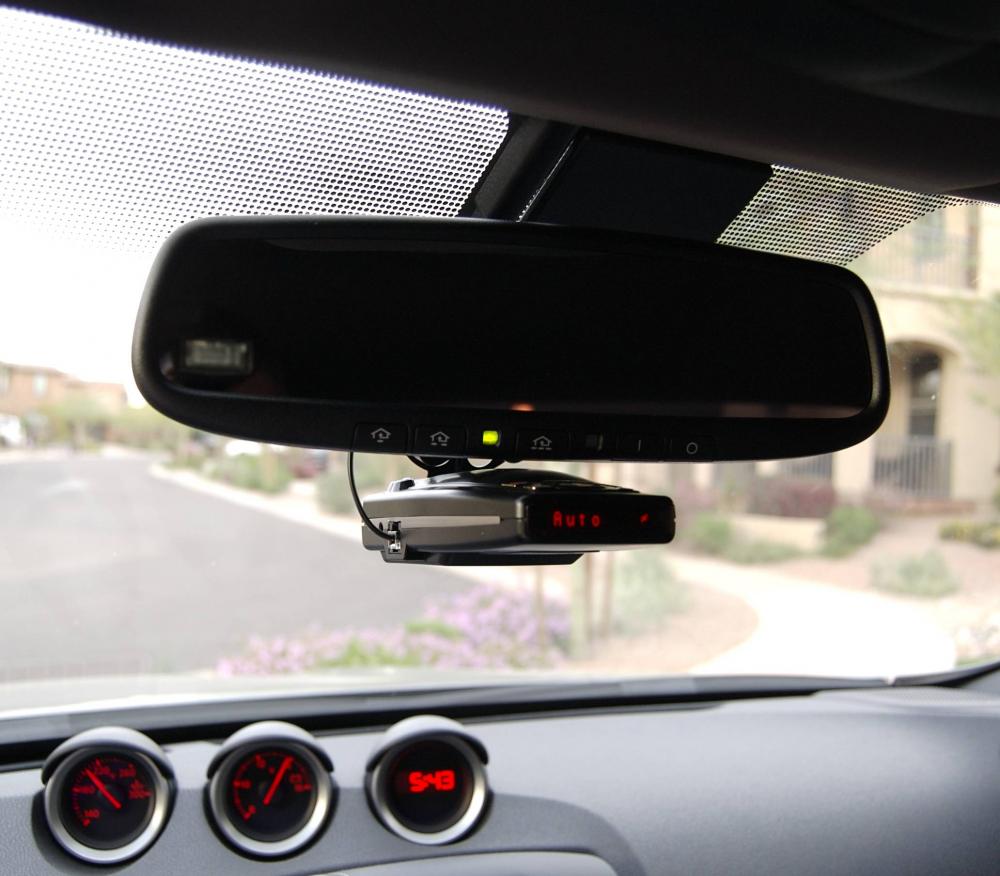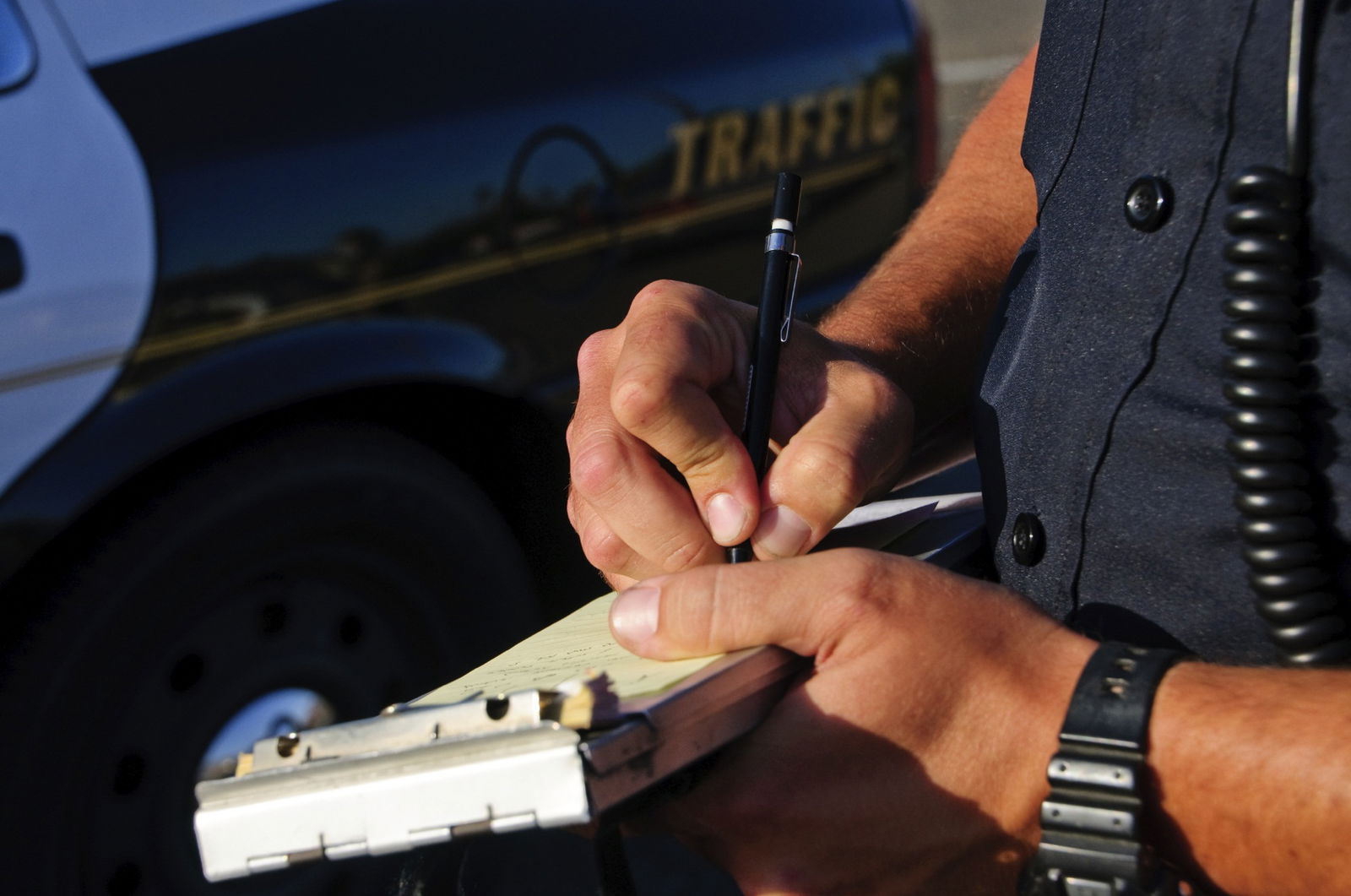The #Ecarnomics of Radar Detectors: Are They Really Worth It?
Admit it: you’ve probably wished, at least once in your life, that you had a radar detector in your vehicle. The thought of having some early detection on your side would make you want to love and enjoy your ride that much more. Let’s face it: getting pulled over sucks, and most people want to minimize their chances of that ever happening to them.
Unless you’re lucky enough to get let off with a warning, you’ll probably have to pay a soul-killing fine for going too fast. That money gets used by the police and the government for all sorts of expenses, and the revenues generated from speeding fines can be substantial. What’s more, those fines benefit everyone in society, one way or another, unless you actually have to pay them. So trying to evade the law is essentially akin to stealing from the public.
But let’s say that the people who are most likely to speed decide to go out and buy a fuzzbuster. Obviously, if a lot of people manage to avoid getting caught speeding, the revenues from collecting fines will decrease. Because a lot of those revenues are used to provide government services, the government will have to find a way to get money from somewhere else. This could be in the form of tax increases, licence and registration fee increases, and so on. So you’ll end up saving less money than you may realize.

On the subject of saving money, you can’t forget that fuzzbusters are expensive. A bog-standard detector will cost somewhere around $50 USD. Now this may seem cheaper than paying for a speeding ticket, but bear in mind that a cheap radar detector is far from perfect. A lot of cheap radar detectors have a shorter range than the actual radar that police use, which means that you might get busted before you even receive a warning. In that case, you’ve just wasted your money.
You could spend more money on a fuzzbuster, but you’ll likely end up in the neighbourhood of $500 USD once you get into the top-of-the-line models. In that case, you’d have to do a lot of speeding to make the detector pay for itself. If you’re doing that much speeding, you’ll probably be putting more stress on your car, resulting in more hidden expenses. And there’s no guarantee that your expensive machine will work every time, so the risk of getting caught is still present. What’s more, if owning a radar detector is illegal, the fine for getting caught with one can be exorbitant. And, yes, some cops do have radar detector detectors. What’s more, radar detectors usually don’t pick up speed cameras or aircraft patrollers, which makes it much less likely that you’ll want to even speed in the first place.

If, on the other hand, you’re still considering buying a fuzzbuster, the math tells us it’s just not worth it. Let’s assume that radar detectors are legal and that the cops can only use radar to catch you speeding. I’ll use what economists call the expected value of savings from purchasing a radar detector. In other words, this value is equal to the cost of a speeding ticket multiplied by the probability that your detector actually works. If you don’t buy a radar detector and obey the speed limit, you’re basically at $0 in savings because you never have to pay for a ticket. If you buy a radar detector and it works every single time, you’re saving on speeding tickets, but you also have to subtract the value of the radar detector. This means that you’d have to do a lot of speeding to get the fuzzbuster to pay for itself.
Now, if you’re only considering getting a $100 unit that, say, works about 60% of the time, here’s what you’ll save: for a $150 speeding ticket, the expected savings is equal to 0.6(+$150) + 0.4(-$150) = $15 in savings for every time you encounter a cop. This means that your radar will have to pick up 7 speed traps before it pays for itself. If you’re unfortunate enough to encounter 7 speed traps and your radar doesn’t pick any of them up, you’re in the hole for $1150. And that’s not even including the value that goes away if you get points on your licence (or even have your licence suspended) as a result of the number of times that your detector lets you down.
But let’s say you still think a radar detector is a good investment. What would happen if you just took that $100 and let it collect interest in the bank? If you want to go really deep into the math and calculate the value of all that compound interest, you’ll basically find out that your thrifty little fuzzbuster isn’t saving you anywhere near as much money as you thought.
Bottom line: it’s simply more sensible to just follow the speed limit. Although fuzzbusters are legal where I live, I don’t own one. And I have never gotten a speeding ticket. That’s a lot of money that I’ve never had to worry about spending. What’s more, it’s also much, much safer for the people around me, especially for tow truck drivers and construction workers. It takes way less mental energy and calculation to just obey the law than to try and figure out the true value of a radar detector.
#ecarnomics

Comments
Fuzzbusters are legal where I live (South Dakota) except in DOT vehicles, and while I do have one, if it goes off its just a fact of life, I dont speed (much) just wanna make sure I know when I’m being watched. I’ll admit to being a bit paranoid. That being said, it was a $100 USD unit, and not as good, but it works. It’s a more preventive measure, I’ve been pulled over when I wasn’t speeding, and they clained they hit me with radar a couple times. #sportscarlife
In Victoria and New South Wales you get demerit points for speeding. Two points for 0-10km/h over, three for 10-25. If you accrue 12 points in three years you lose your licence. A radar detector would be useful here but they’re illegal. So is flashing your high beams to warn drivers of speed cameras, or police hiding behind trees.
But if you’re in a country that doesn’t give demerit points for speeding, I would agree that it’s not worth having a radar detector
it would be somewhat sensible to buy one even if they can be sometimes innacurate… oh wait, aren’t they illegal in Sask.?
Found this surprisingly useful
Nice post but I’m curious about that formula, if you’re expecting to get 60% of the value out of it why are you also subtracting 40%? I thought it was because it’s unused but multiplying it by .6 would already take care of the unused 40%.
This should be simple conclusion and you almost nailed it: Don’t be an arse on the street and follow the laws. Save the speeding for the track like a true car guy.
But now they use lasers which you can’t do anything about.
How can you say radar detectors would run up taxes? If no one went over the speed limit again, drove like a textbook, and signaled as the law says you should, would taxes then raise because less people are being pulled over? No.
How to government 101:
Step 1: Set absurdly low speed limits
Step 2: Spend taxpayers money on buying machines to catch the taxpayers and force them to pay even more money when they go a few miles an hour over your absurdly low speed limits
Step 3: Say you did it for health and safety
How about we raise the ridiculously low speed limits? Fewer people will speed, you’ll have less differential in speed between some cars and others and therefore safer roads. Like it or not people will drive at the speed they feel comfortable with. My experiences driving on American roads confirm that everyone goes over the speed limit. I vote we have a referendum on raising speed limits and whether or not we want there to be cameras. Remember that the government works for us, not the other way around.
Pagination